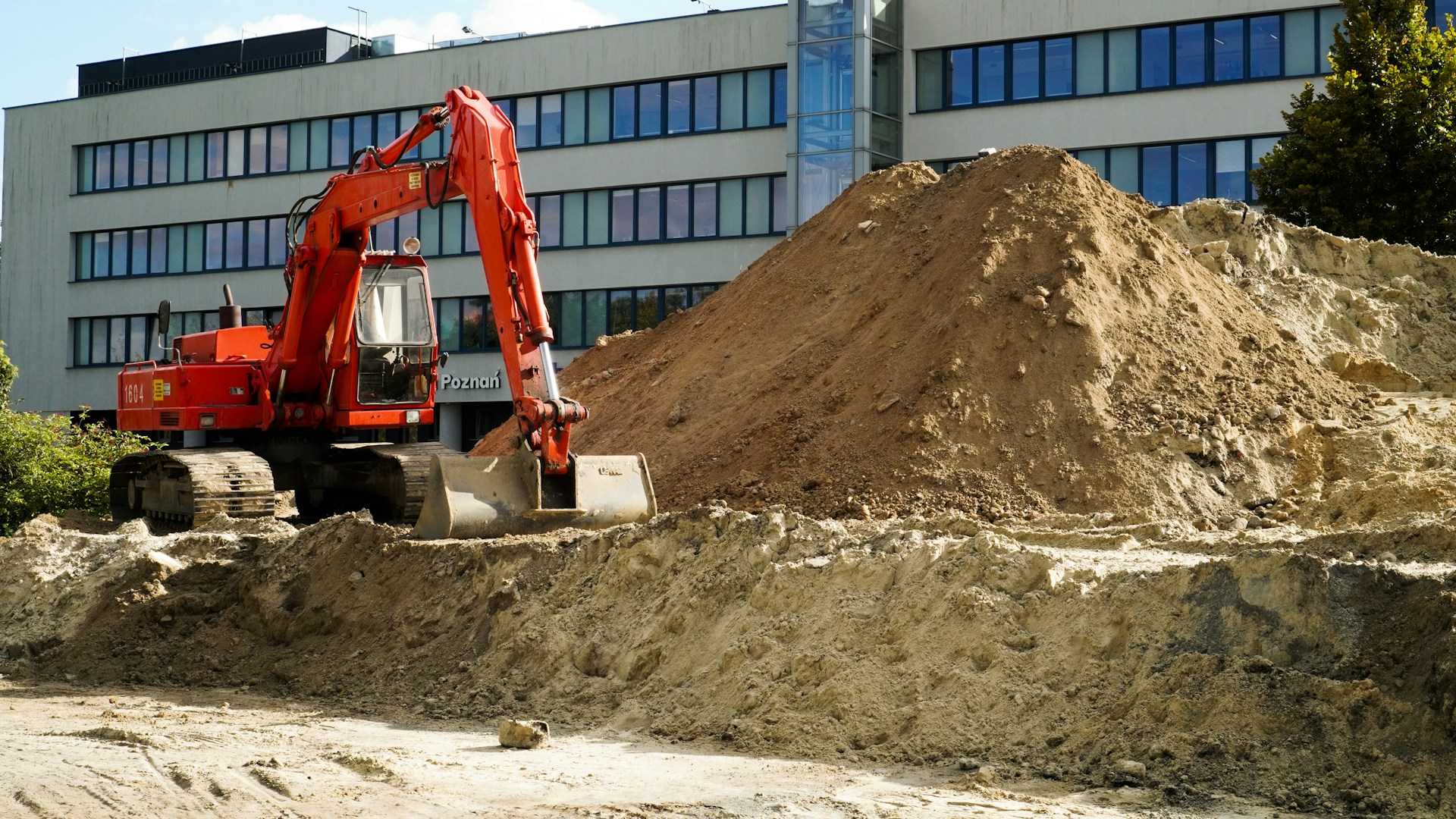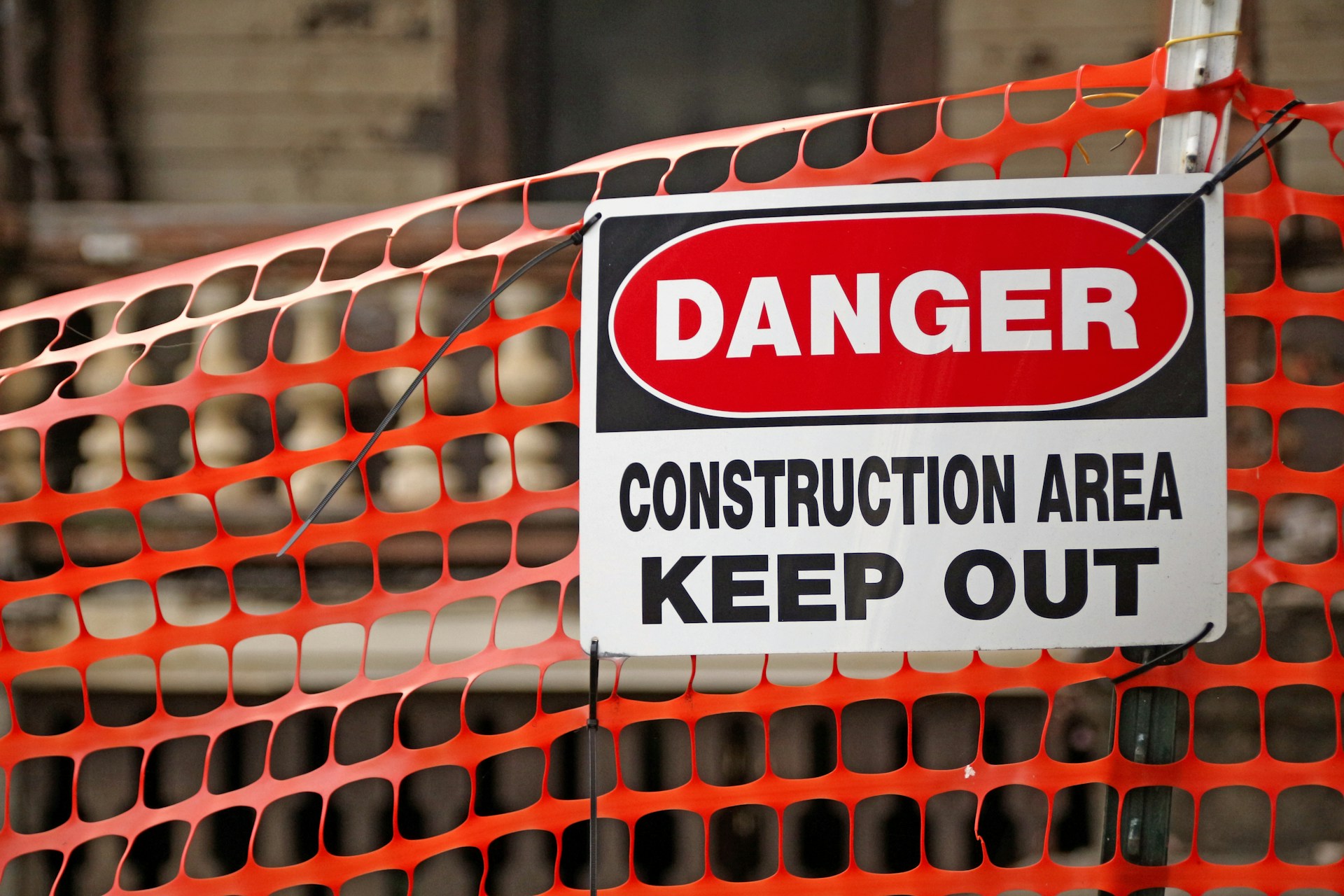Construction schedules slip. Budgets balloon. Quality suffers. These problems plague developers and property owners who lack dedicated construction management oversight.
The benefits of construction management services transform project delivery through systematic coordination, cost control, and schedule certainty. Professional construction managers unite planning, design, execution, monitoring, and closeout under a structured process that delivers projects on time, within budget, and to defined quality standards.”
What Do Construction Management Services Include Across The Project Lifecycle?

Construction management services encompass five distinct phases that form the complete project lifecycle: planning, design, execution, monitoring and controlling, and closing. Each phase requires specific expertise and coordinated oversight to deliver projects successfully. We integrate scope definition, resource management, risk management, cost control, time management, and quality management throughout every phase.
The construction manager functions as the owner’s point person during the entire lifecycle. This role involves coordinating architects, engineers, and general contractors while managing communication flow between all parties. The construction manager protects the owner’s interests by providing independent oversight and ensuring that project goals remain aligned with business objectives.
Planning Phase: Foundation For Success
The planning phase establishes the project framework and defines success parameters. We conduct feasibility studies, site analysis, and initial scope development during this critical stage. Resource allocation begins with preliminary budgets, timeline estimates, and team structure planning.
Work breakdown structure creation occurs during planning to organize project deliverables into manageable components. This systematic approach helps identify potential risks early and establishes clear milestones for tracking progress. Regulatory compliance requirements and permit strategies are also addressed at this stage to prevent delays later in the project.
Design Phase: Translating Vision Into Buildable Plans
During the design phase, we coordinate between design professionals and construction teams to ensure buildability and cost alignment. Regular design reviews help identify potential constructability issues before they become expensive problems. Value engineering opportunities are evaluated to optimize both performance and cost.
Communication management becomes crucial as design decisions impact budget, schedule, and quality outcomes. We facilitate design team meetings, track deliverable schedules, and ensure that design development stays aligned with project goals. This collaborative approach prevents design changes that could disrupt construction schedules.
Execution Phase: Managing Construction Activities
The execution phase transforms design documents into physical construction. We oversee contractor selection, contract negotiations, and mobilization activities. Daily coordination ensures that work proceeds according to schedule while maintaining quality standards and safety compliance.
Resource allocation management becomes intensive during execution as multiple trades coordinate on-site. We monitor material deliveries, equipment staging, and workforce deployment to maintain project momentum. Regular progress meetings and reporting keep stakeholders informed of construction status and any emerging issues.
Monitoring And Controlling: Maintaining Project Performance
Continuous monitoring throughout the project lifecycle ensures adherence to scope, budget, schedule, and quality requirements. We implement control systems that track actual performance against planned targets. Change management processes handle scope modifications while maintaining project integrity.
Cost control measures include regular budget reviews, payment application verification, and change order evaluation. Schedule monitoring involves critical path analysis, milestone tracking, and resource optimization. Quality control encompasses inspection coordination, testing verification, and deficiency management.
Risk management remains active throughout monitoring and controlling. We identify emerging risks, evaluate their potential impact, and implement mitigation strategies. Regular risk register updates ensure that the project team stays prepared for potential challenges.
Closing Phase: Ensuring Complete Project Delivery
Project closeout involves finalizing all construction activities and transitioning the completed facility to the owner. We coordinate final inspections, punch list completion, and systems commissioning. Documentation assembly includes as-built drawings, warranties, operation manuals, and training materials.
Final resource allocation includes releasing project team members, closing vendor contracts, and conducting final cost reconciliation. Lessons learned documentation captures valuable insights for future projects. Certificate of occupancy and final payment processing complete the formal project closure.
Single Point Of Responsibility: Streamlined Delivery
Some construction management approaches utilize a single-source model where one entity provides both design and construction services. This design-build approach reduces conflicts by eliminating the traditional separation between design and construction teams. Single point of responsibility ensures clear accountability throughout the project lifecycle.
We coordinate design-build delivery by managing integrated teams that work collaboratively from project inception through completion. This approach streamlines communication, accelerates decision-making, and reduces the potential for disputes between design and construction professionals. The result is more predictable project delivery with reduced risk exposure for property owners and developers.
How Do These Services Cut Costs and Save Time?
Construction management services deliver measurable cost savings and schedule compression through systematic approaches that address the most expensive aspects of project delivery. We focus on early intervention strategies and continuous optimization to protect our clients’ budgets and timelines.
Cost Control Through Early Planning and Value Engineering
Early involvement in preconstruction planning creates the foundation for cost control. We analyze project requirements during the design phase when changes cost thousands rather than millions. This front-loaded approach identifies potential issues before they become expensive problems on-site.
Value engineering systematically reviews project functions to deliver the same performance at lower costs. We examine material specifications, construction methods, and design elements to find alternatives that maintain quality while reducing expenses. Research shows that value engineering can identify ways to save money without compromising design, materials, or building techniques.
Competitive bidding removes duplicate costs by establishing clear scope boundaries and standardizing procurement processes. We coordinate with multiple suppliers and subcontractors to secure optimal pricing while maintaining quality standards.
Real-Time Cost Reporting and Budget Controls
Accurate estimating forms the backbone of cost control. We use detailed cost breakdown structures and historical data to develop precise budgets that account for material, labor, and equipment expenses. These estimates become the baseline for ongoing cost monitoring throughout construction.
Real-time cost reporting provides immediate visibility into project expenses. Construction management software tracks costs against budgets continuously, enabling quick responses to potential overruns. Teams can access current financial data instantly, supporting informed decision-making at every project phase.
Active cost controls include regular budget reviews, variance analysis, and corrective action protocols. We implement cost codes to track expenses by category, making it easier to identify trends and address issues before they impact overall budgets.
Scope Management and Change Control
Clear change management processes limit scope creep by establishing formal procedures for evaluating and approving modifications. We document all changes with cost and schedule impacts, ensuring transparency and preventing unauthorized work that erodes profit margins.
Structured scope definition creates boundaries that protect against uncontrolled expansion. By establishing detailed work breakdown structures during planning, we maintain focus on original objectives while accommodating necessary adjustments through controlled processes.
Schedule Optimization and Resource Management
Master scheduling aligns all project activities on a unified timeline. We coordinate subcontractors on sequencing logic and activity durations, creating realistic schedules that account for dependencies and resource constraints. This coordination reduces delays caused by conflicts or resource shortages.
Frequent schedule updates and readjustments keep projects on track. Weekly progress reviews identify potential delays early, allowing teams to implement corrective measures before problems cascade through the schedule.
Lean construction methods eliminate waste in both time and materials. We apply just-in-time delivery principles to reduce on-site storage requirements and minimize material handling costs. These approaches streamline workflows and reduce non-value-added activities.
Advanced Construction Methods and Technology
Prefabrication and modular construction options accelerate project delivery by moving work to controlled environments. Prefabrication can reduce project timelines by up to 20% while improving quality control and reducing weather-related delays.
Strong resource optimization ensures materials, equipment, and labor arrive when needed. We coordinate deliveries with construction sequences to minimize downtime and maximize productivity. This planning reduces carrying costs and prevents schedule delays caused by resource conflicts.
Construction management software integrates scheduling, budgeting, and reporting functions. Shared real-time data ensures all team members work from current information, reducing coordination errors and supporting collaborative decision-making that keeps projects on budget and schedule.
How Do Construction Management Services Raise Quality And Safety?

Construction management services deliver measurable improvements in quality control through systematic monitoring, regular inspections, and proactive issue detection. We establish integrated feedback loops that connect design teams, field crews, and quality assurance specialists throughout the project lifecycle. This comprehensive approach prevents rework by catching problems early when they cost less to fix.
Safety performance improves dramatically when we identify potential hazards during preconstruction planning. Our teams conduct thorough safety gap analyses and implement mitigation strategies before crews arrive on site. We maintain strict adherence to building codes and regulatory requirements, including accessibility standards such as ADA compliance, which protects both workers and future building occupants.
Enhanced Visualization Through BIM Technology
Building Information Modeling revolutionizes quality control by enabling clash detection before construction begins. We use BIM to coordinate mechanical, electrical, and plumbing systems with structural elements, preventing conflicts that typically require expensive rework. The 3D visualization helps all stakeholders understand spatial relationships and identify potential issues that 2D drawings often miss.
BIM also supports safety planning by allowing virtual walkthroughs of construction sequences. Our safety professionals can identify hazards and develop protection strategies using the digital model as a reference. This proactive approach has been shown to improve overall project safety outcomes by 27% according to industry data.
Ongoing Monitoring And Quality Assurance
We implement continuous quality monitoring systems that track performance against established benchmarks. Regular inspections occur at critical milestones, with documented findings fed back into project management systems for immediate action. This creates accountability across all trades and ensures consistent adherence to specifications.
Our integrated teams maintain constant communication between quality control managers, field supervisors, and specialty contractors. When issues arise, the feedback loop enables rapid response and resolution. This collaborative approach reduces the likelihood of defects progressing to later project phases where correction costs multiply significantly.
Code Compliance And Regulatory Adherence
Construction management services ensure comprehensive compliance with building codes, safety regulations, and accessibility requirements. We conduct regular compliance audits and coordinate with local authorities throughout the construction process. This systematic approach prevents costly delays and rework that often result from regulatory violations discovered late in the project.
Energy efficiency requirements and sustainable building practices are integrated into our quality control processes. We verify that insulation, HVAC systems, and building envelope components meet current energy codes. This attention to contemporary building standards supports long-term performance and helps developers achieve green building certifications when required.
What Common Project Challenges Do They Solve, And Which Practices Make Them Work?
Construction projects face predictable challenges that can derail schedules and budgets. Poor communication creates confusion between trades and stakeholders. Inaccurate cost estimation leads to budget overruns and financial strain. Scope creep expands project requirements without proper oversight. Resource allocation problems cause delays and inefficient workflows. Regulatory compliance issues result in costly rework and permit delays.
Communication Breakdowns And Centralized Solutions
Communication failures plague construction projects when multiple parties work without clear coordination. Subcontractors receive conflicting instructions. Architects and engineers operate in separate information silos. Clients remain uninformed about progress and decisions.
We establish centralized communication with a single point of contact to eliminate confusion. All project updates flow through dedicated channels. Regular progress meetings keep stakeholders aligned on schedules and changes. Mobile field reporting enables real-time updates from job sites to project offices.
Cost Estimation Problems And Financial Controls
Inaccurate cost estimation stems from incomplete scope definition and market fluctuations. Initial budgets fail to account for unforeseen conditions. Change orders accumulate without proper tracking. Material costs shift throughout project duration.
Detailed estimating addresses these problems through comprehensive analysis. We conduct thorough site evaluations during preconstruction. Regular budget updates track spending against projections. Formal change management processes control scope modifications. Built-in compliance checks prevent costly regulatory violations and rework.
Resource Planning And Workflow Optimization
Resource allocation challenges create bottlenecks and idle time. Equipment arrives without proper scheduling coordination. Labor crews work inefficiently due to poor task sequencing. Material deliveries conflict with installation schedules.
Resource planning tools optimize workflows through strategic coordination. We develop comprehensive project plans with detailed task sequences. Work breakdown structures organize complex projects into manageable phases. Frequent progress reviews identify potential delays before they impact schedules.
Technology Solutions For Project Coordination
Construction management software centralizes scheduling, budgeting, and documentation. Teams access current drawings and specifications through shared platforms. Building Information Modeling (BIM) provides 3D coordination that identifies conflicts before construction begins. Clash detection prevents costly field corrections and delays.
Drones and robotics enhance site monitoring and safety inspections. Aerial surveys capture progress documentation and identify potential hazards. Mobile apps enable field crews to report issues immediately. Real-time data sharing keeps all stakeholders informed about current conditions and progress.
Building Collaborative Project Culture
Successful construction management requires collaborative culture among all participants. We facilitate regular coordination meetings between trades. Integrated project delivery methods align team goals with owner objectives. Centralized updates ensure consistent information flow across all project phases.
EB3 Construction coordinates agencies, stakeholders, and occupied-phase work as the owner’s primary point of contact. This single-source accountability reduces conflicts and streamlines decision-making throughout project delivery.
Conclusion And Next Steps

Construction management services transform project delivery through enhanced collaboration, strategic cost control, accelerated timelines, elevated quality standards, and strengthened safety compliance. These benefits create a foundation for predictable outcomes that developers and property owners can rely on throughout the construction lifecycle.
To implement effective construction management on your next project, we recommend these essential steps: engage a construction manager during planning and preconstruction phases for maximum value impact. Define clear scope boundaries, establish realistic budget parameters, and create detailed schedules that account for contingencies. Develop a comprehensive work breakdown structure that breaks complex projects into manageable components. Build a master schedule with regular milestone updates and progress reviews. Adopt construction management software integrated with BIM technology for enhanced coordination and visualization. Establish formal change management protocols and risk mitigation plans that protect against scope creep and unforeseen challenges. Document lessons learned during project closeout to inform future construction decisions.
Ready to streamline your next construction project with proven management expertise? Contact EB3 Construction to discuss how our construction management approach can deliver your project goals.




